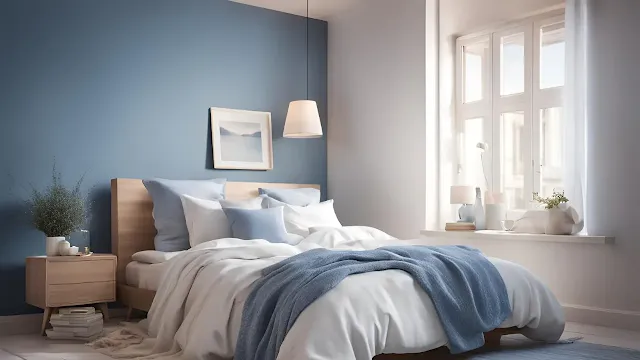Let's talk about something we all crave but often struggle to get enough of: sleep. Good sleep hygiene is crucial for a wellness lifestyle, and it’s not just about getting eight hours a night. Quality sleep impacts our overall health and productivity, turning those restless nights into restful slumbers. Ready to dive into some wellness tips that will help you sleep better and feel great?
 |
| Sleep Hygiene: Tips for a Restful Night and Productive Day |
What is Sleep Hygiene?
Sleep hygiene refers to the practices and habits that are necessary to have a good night's sleep and full daytime alertness. It’s like a personal toolkit for ensuring you sleep soundly and wake up refreshed. Historically, people relied on natural cues like sunset and sunrise to regulate their sleep, but our modern lifestyle often disrupts these natural rhythms.
Why is Sleep Hygiene Important?
When we talk about wellness, sleep hygiene is a foundational element. Good sleep supports mental clarity, emotional stability, and physical health. Poor sleep hygiene, on the other hand, can lead to chronic health issues, reduced cognitive function, and a drop in productivity. Imagine trying to focus on work after a night of tossing and turning – not fun, right?
Creating a Sleep-Conducive Environment
One of the first steps in improving sleep hygiene is creating an environment that encourages sleep. Start with your mattress and pillow. These should be comfortable and supportive to avoid waking up with aches and pains. Also, consider the room temperature – cooler temperatures are generally more conducive to sleep. Think of your bedroom as your personal sleep sanctuary.
The Role of Light and Darkness
Our bodies are naturally attuned to light and darkness. Exposure to natural light during the day helps regulate our sleep-wake cycle. Conversely, too much blue light from screens before bed can interfere with our ability to fall asleep. Try dimming the lights and reducing screen time an hour before you plan to sleep. It's like signaling your body that it’s time to wind down.
Establishing a Consistent Sleep Schedule
Consistency is key to good sleep hygiene. Going to bed and waking up at the same time every day helps regulate your body’s internal clock. Even on weekends, try to stick to your schedule. This routine reinforces your body’s sleep-wake cycle, making it easier to fall asleep and wake up naturally.
Diet and Sleep
What you eat can significantly affect your sleep. Foods rich in tryptophan, like turkey and bananas, can help promote sleep. On the flip side, avoid caffeine and heavy meals before bedtime. Instead, opt for a light snack if you’re feeling peckish. It’s all about making smart choices that support your body’s natural rhythms.
Exercise and Its Impact on Sleep
Regular exercise can greatly enhance your sleep quality. However, the timing of your workout matters. Try to finish vigorous exercises at least a few hours before bedtime. Gentle activities like yoga or stretching can be done closer to bedtime and can actually help you relax. Think of exercise as a way to prime your body for sleep.
Stress Management Techniques
Stress is a major sleep disruptor. Incorporating relaxation techniques like meditation or deep breathing into your daily routine can help manage stress levels. Cognitive Behavioral Therapy (CBT) is also effective for tackling anxiety and improving sleep patterns. Consider these techniques as part of your daily wind-down ritual.
Technology and Sleep Hygiene
While technology can be a source of sleep disruption, it can also be a tool for promoting better sleep if used wisely. Manage your screen time by setting limits and use apps designed to reduce blue light. Some gadgets, like white noise machines or sleep trackers, can also enhance your sleep environment. It’s all about balance and smart use of technology.
Napping: Dos and Don'ts
Napping can be a double-edged sword. A short power nap can boost your energy and mood, but long or late naps can interfere with your nighttime sleep. Aim for a 20-minute nap early in the afternoon. Think of it as a quick recharge rather than a second sleep session.
Sleep Disorders and When to Seek Help
If you’re consistently struggling with sleep despite following good sleep hygiene practices, you might be dealing with a sleep disorder. Common issues include insomnia, sleep apnea, and restless leg syndrome. Don’t hesitate to seek professional help if you suspect a sleep disorder. It’s important to address these issues promptly to avoid long-term health consequences.
Practical Tips for Better Sleep
Here are some daily habits to adopt for better sleep: maintain a consistent sleep schedule, create a relaxing bedtime routine, limit naps, and ensure your sleep environment is conducive to rest. Additionally, engage in relaxing activities before bed, like reading or taking a warm bath. These small changes can add up to significant improvements in your sleep quality.
FAQs about Sleep Hygiene
1. What are the best foods for promoting sleep?
- Foods like almonds, turkey, chamomile tea, and kiwi are known to promote sleep due to their nutrient content.
2. How can I reduce blue light exposure before bed?
- Use blue light filters on your devices, reduce screen time an hour before bed, and consider wearing blue light blocking glasses.
3. Is it bad to exercise right before bed?
- Vigorous exercise right before bed can be stimulating, but gentle activities like stretching or yoga can be beneficial.
4. Can improving sleep hygiene help with insomnia?
- Yes, good sleep hygiene can significantly improve symptoms of insomnia and other sleep disorders.
5. What should I do if I wake up in the middle of the night and can’t fall back asleep?
- Try a relaxing activity like reading or listening to calm music. Avoid screens and bright lights.
Conclusion
Prioritizing sleep hygiene is a key component of a wellness lifestyle. By making small adjustments to your daily routine and environment, you can enjoy better sleep and greater productivity. Remember, good sleep is not a luxury – it’s a necessity. So, take these wellness tips to heart and start improving your sleep hygiene today.


